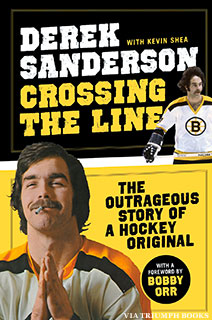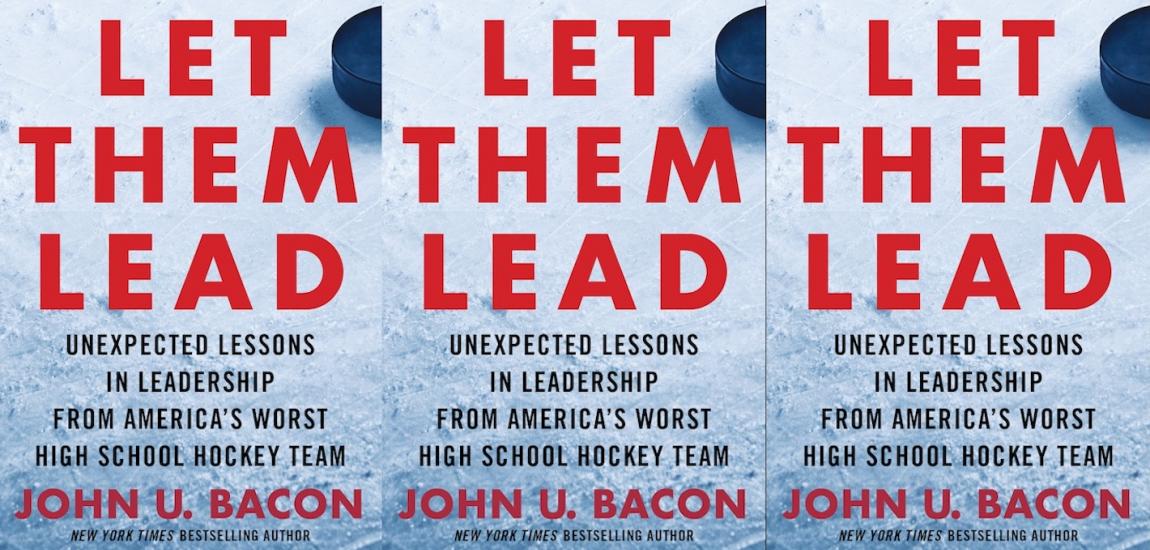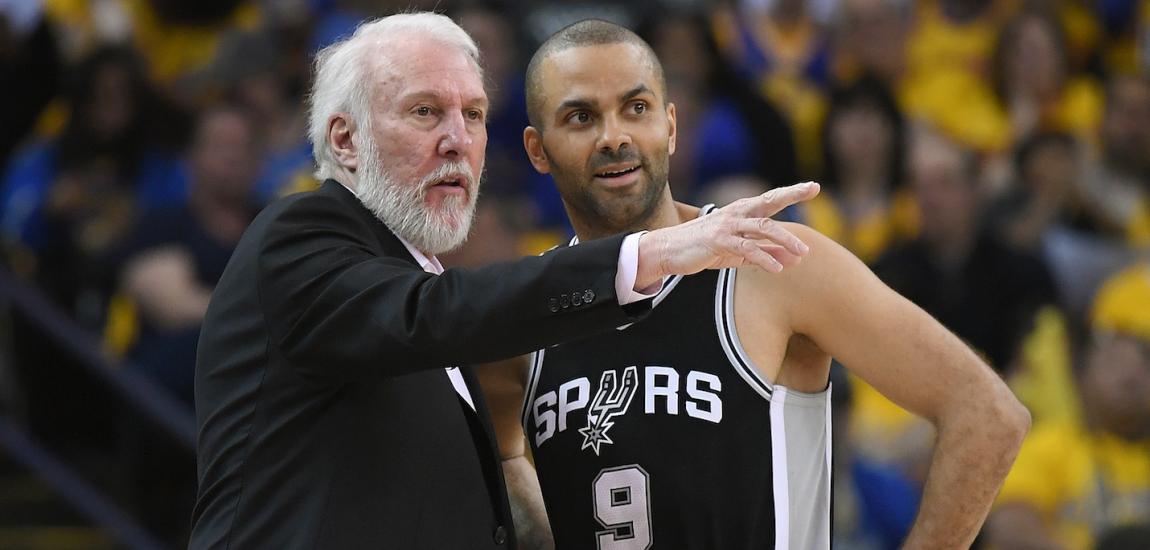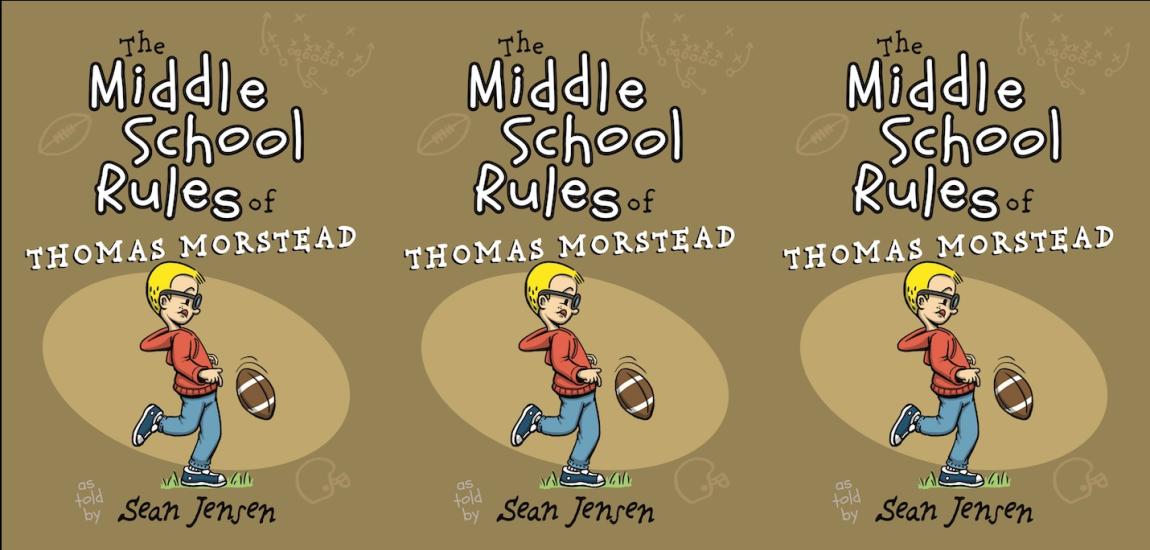Derek Sanderson's ferocious style helped lead the Boston Bruins team to two Stanley Cup victories in the early 1970s. Living life in the fast lane, Sanderson grew his hair long, developed a serious drinking problem, and eventually found himself out of the league and prowling the streets for his next drink. In his autobiography Crossing The Line, Sanderson comes clean on his life in hockey, the demons that threatened to consume him, and the strength and courage it took to fight his way back. Today he is a successful entrepreneur and this is excerpt reveals the details of first big ventures.
I got a call one day in June 1969. "Hi, is this Derek Sanderson? This is Joe Namath."
My reaction: "Yeah, sure. Okay, who's screwing around with me?"
"No, it really is Joe Namath," he said. "I've got a proposition for you. Any chance you can come to New York?"
"Right!" I said. "Sure," and I hung up on him.
He called right back. "Look, Derek. Call me at this number," and he gave me a New York City number. I called it and, sure enough, Namath answered. He laughed and admitted anybody could have said they were him, but he asked if I could meet him the next day.
"Sure," I agreed.
Joe Namath was the American Football League. He was the rookie of the year in 1965, a four-time All-Star and set all sorts of records for passing. On January 12, 1969, Joe led the AFL's New York Jets to one of the greatest upsets in football history when they beat the NFL's Baltimore Colts in the third Super Bowl. A couple of days earlier, he had guaranteed a victory, and after the game, he was voted the MVP of the championship game. Joe was the future of football, especially after being a winner in New York.
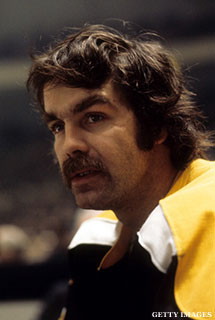
Joe had opened a bar in Manhattan called Bachelors III, but the National Football League's commissioner, Pete Rozelle, ordered him to divest himself of his interest in the bar in order to protect the sport's reputation. There were too many bookmakers in the joint, and the NFL didn't want the association with gambling. Joe didn't, either, but he had a very viable, growing business.
"No one's going to tell me I have to get out of the bar business," Joe said, and he held a media conference to announce he was quitting football. The owners panicked. Joe had brought a ton of cash to the sport through increased TV revenue. Joe and Pete Rozelle had a long meeting, and in the end, they decided that Joe would sell his shares in the New York location of Bachelors III, but if he followed through with his plans to open locations in Boston and Fort Lauderdale, he could keep those shares. After missing most of training camp, Namath came out of retirement and reported to the Jets.
Bachelors III was the first real dating bar for singles in America. The timing was unbelievable. The world was changing rapidly in the 1960s, and my generation was at the forefront of the changes.
Namath asked me to meet him at the Green Kitchen on First Avenue in New York. I told the guy at the door that I was there to see Joe Namath. He led me to a booth, and there was Joe Willie, feet up on the table, wearing New York Jets shorts, a T-shirt and sneakers. He was talking on the phone and eating a salad.
He stuck his hand out. "Hey Derek. Joe." Then he introduced me to the guys he was sitting with. Joe didn't go anywhere without them. I slid into the booth and asked, "What's this all about?"
"You may have read the news that I quit football, but now they want me to come back. But in order to go back, I have to leave Bachelors III in New York." The Bachelors III were Ray Abruzzese, Bobby Vannuchi and Namath. Abruzzese was Joe's roommate at the University of Alabama and had gone on to a pro career with the Buffalo Bills and New York Jets of the AFL. Vannuchi was another pal of Joe's. He called himself Bobby Van. He was the host who'd greet people at the door.
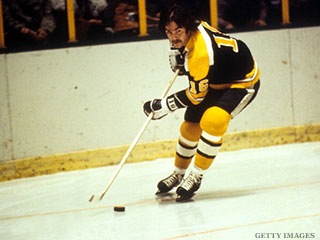
"In Boston," Joe said, "it's going to be me, Bobby Van and you. You'll be the third bachelor."
"Why me?" I asked.
"I gave it a lot of thought," Joe explained. "The first guy we thought of was Kenny Harrelson. He's an action guy. He was in the running for MVP, but the Red Sox just traded him to Cleveland. I have to have my guys in Boston. I thought about Tony Conigliaro. He's a good-looking guy, but he's got an ego bigger than mine, so that wouldn't work. I thought about Bobby Orr, but he has a 'milk and cookies' reputation. I don't think the kid drinks, so that wouldn't work."
He looked up from his salad. "So, I hear you have some charisma. You're in. I figure you'll stick around for a while and we'll build a business. Everything will be good."
It sounded too good to be true. I said, "Okay, what's the deal?"
He said, "You get a salary of $30,000 a year." I liked this deal already! That was more than twice what I was making with the Bruins. "And you get a new Lincoln." It was a brand new, gold Lincoln Continental Mark III. I got the licence plate BRUINS 16 and had to have it welded on or else it would've been stolen every day.
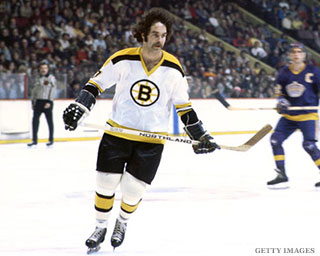
"How much money do I need to put up?" I asked. "None," Namath replied. "And you also get power of the pen." "What's 'power of the pen'?" I inquired. He said, "When your friends and people you've invited come into the bar, you pick up their tabs. Just sign the cheque. We write it off as marketing."
That's how I learned how to pick up the tab. Unfortunately, I ended up buying the world a drink. Every night was sensational fun. There were lineups around the block. When the Bruins were in town, we were there until two in the morning every night. All the waitresses were great-looking. It was a beauty contest. They all wore V-neck sweaters to show some cleavage and hot pants with high boots. I was thinking, "This is unbelievable! And I'm the boss!"
Two doors down from Bachelors III was the Playboy Club, which had opened in Boston in 1965. I had earlier met Mary, the Den Mother. She oversaw 64 of the best-looking women on the eastern seaboard. Playboy Enterprises had strict rules for the girls. They didn't want the Playboy brand to get tarnished. The girls could only pose nude if it was for Playboy, they couldn't have their boyfriends or husbands on the premises and there was to be no interaction with customers in the parking lot. It was really prestigious to be a Playboy bunny in those days. I'd gotten to know all the girls.
I went to Mary and said, "How about inviting them two doors down to my new bar, Bachelors III, after work? The girls can drink for free."
She was astonished. "They don't have to pay?"
"Nope," I said. "All they have to do is show their Bunny Card and the drinks are on the house."
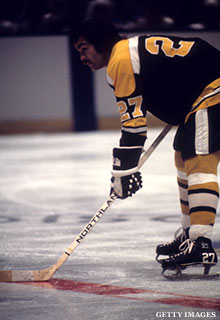
"Wow, I'll tell the girls," she exclaimed. She posted a note to that effect on the Playboy Club's bulletin board. That was it. It was insane! Thirty-two of the best-looking women in the country were in my club every shift -- morning, afternoon, lunch and dinner. They would come in after work and party until two, three, four o'clock in the morning. And where beautiful girls go, guys are sure to follow.
I also went to the Red Sox and Patriots and told the players they could drink for free at our club. Same with my teammates on the Bruins. Any time you have athletes and beautiful girls, the bar will be jammed. It was party time! Guys trying to pay for a drink were five deep at the bar all day. We had the best bar in town.
When the Jets were playing the Patriots, Namath was in the bar and every- body knew it. He'd come in Friday, Saturday and Sunday, joking and announc- ing that it was time to party. The best-looking women in the city showed up. It was just a zoo. Joe drank Johnnie Walker Black and talked football. That's all he ever talked about. He never did understand hockey.
The lineups went around the block. Jerry McCullough, the only male employee at Bachelors III, would go out, inspect the line and decide who got in. You have to know that the most beautiful single girls got preferential treatment. There were so many beautiful women in our club every night that I was like a kid in a candy store. This was all brand new to me, so I was quite taken with the whole scene. The girls were flirty and often quite forward. I was always a one-on-one guy, but I slipped a few times. If you want insanity, go to bed with three or four women at once. It was unbelievable.
I loved playing hockey with the Boston Bruins and loved having a very active social life. The atmosphere around Bachelors III was electric, but after a while, it got to be pretty methodical. I would go to Bachelors III after practice, have lunch and then hang around in the afternoon, sipping a couple of beers. Then, I'd find somebody, take them to dinner and then go home to bed, sometimes alone.
My partner, Joey Cimino, and I were sitting in Bachelors III, counting the money one night, when he turned to me and asked, "Why are we doing this for Namath, Turk? Why don't we do it for ourselves?"
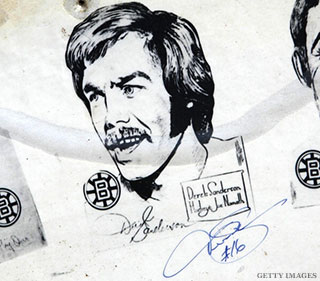
"I don't know," I said. "Joe Willie's a good guy."
"I know," Joey agreed. "But we could be doing this for ourselves. It's our town."
I hadn't really thought about it before. "Interesting," I mused. "What are we looking at?"
He said, "I'm looking at building our own place." I liked the sound of that. "I've got a spot picked out," he said. It was at the corner of Newbury and Fairfield. Great spot, but it was too close to a church, too close to a school and, to complicate matters, the residents of Back Bay didn't want a bar there. Joey said, "I need you to go see Sonny McDonough and convince him that we can zone the area for our bar. He'll do it for you."
Sonny McDonough was an influential member of Boston's city council and chairman of the Massachusetts Governor's Council. His chauffeur was the head of the Alcohol Beverage Control Board, which granted licences. McDonough was my friend Jimmy's father and a terrific guy who had helped us out in the past.
I drove up to Second Cliff and called on Sonny. He welcomed me with a smile. "It's favour time, is it, Derek?" He knew.
I told him about our vision and explained our predicament. He made me go through the process, but told me, "I'll get you your licence, don't worry about it, but I don't want Jimmy and Joey to know right away. I don't want them to think it's that easy. I worked a lifetime to get the power to have the ability to help my kids." All four of Sonny's boys did very well. Jay is a clerk for courts in Massachusetts, Jimmy got his law degree, Dicky became a lobbyist and Paul became a well-known fashion designer.
In September 1970, we opened Daisy Buchanan's, named after the Great Gatsby's lover in F. Scott Fitzgerald's classic novel. Daisy's held 85 people, but we used to put 200 in there every night. It was a zoo! A plaque on the wall displayed our motto: "Living well is the best revenge" -- a quote from the poet George Herbert.
We were doing very well at Daisy's, and then Joey told me we were going to open up another bar. I was concerned. The bar and restaurant business is really tough. Sixty-five percent of bars fail in the first six months.
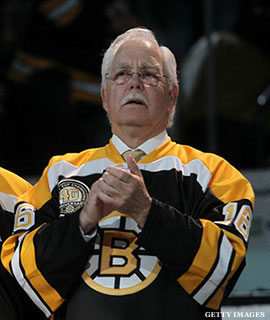
"Are you kidding me? Where?" He didn't know at that moment. All he knew was that he was going to get another bar opened. Joey was a terrific partner, owner and manager. Eventually, we had four: Daisy Buchanan's, The Great Gatsby's, Scott's and Zelda's, all reflecting Joey's appreciation of F. Scott Fitzgerald.
When we opened Daisy's, I simply walked away from Bachelors III. I just didn't give it a second thought. I never told Namath I was leaving, and that's not like me. He was miffed, and he had every reason to be. We haven't spoken since. He was a great friend to lose. It certainly wasn't the way to handle the situation, and I admit I went about it all wrong.
As it turned out, Joey, Jimmy and I were the triumvirate -- a great team. We did everything together, so it ended up going well. Joey ran a tight ship. He taught me things about the bar business that I still consider amazing. For example, he told me to put the television at the far end of the bar because people need a focal point when they come into an empty bar. He wanted the bottles dusted down every night. He handled the staff. He told me, "If you listen to them, they'll have you working for them!"
I was really into Daisy's and spent most of my spare time there. It was aimed at a younger college crowd who just wanted to go out and see beautiful women and the athletes that came in every night. It was a fun place ... and still is.
-- Excerpted by permission from Crossing The Line by Derek Sanderson with Kevin Shea. Copyright (c) 2012 by Derek Sanderson with Kevin Shea. Published by Triumph Books. All rights reserved. No part of this excerpt may be reproduced or reprinted without permission in writing from the publisher. Available for purchase from the publisher, Amazon, Barnes & Noble and iTunes.

